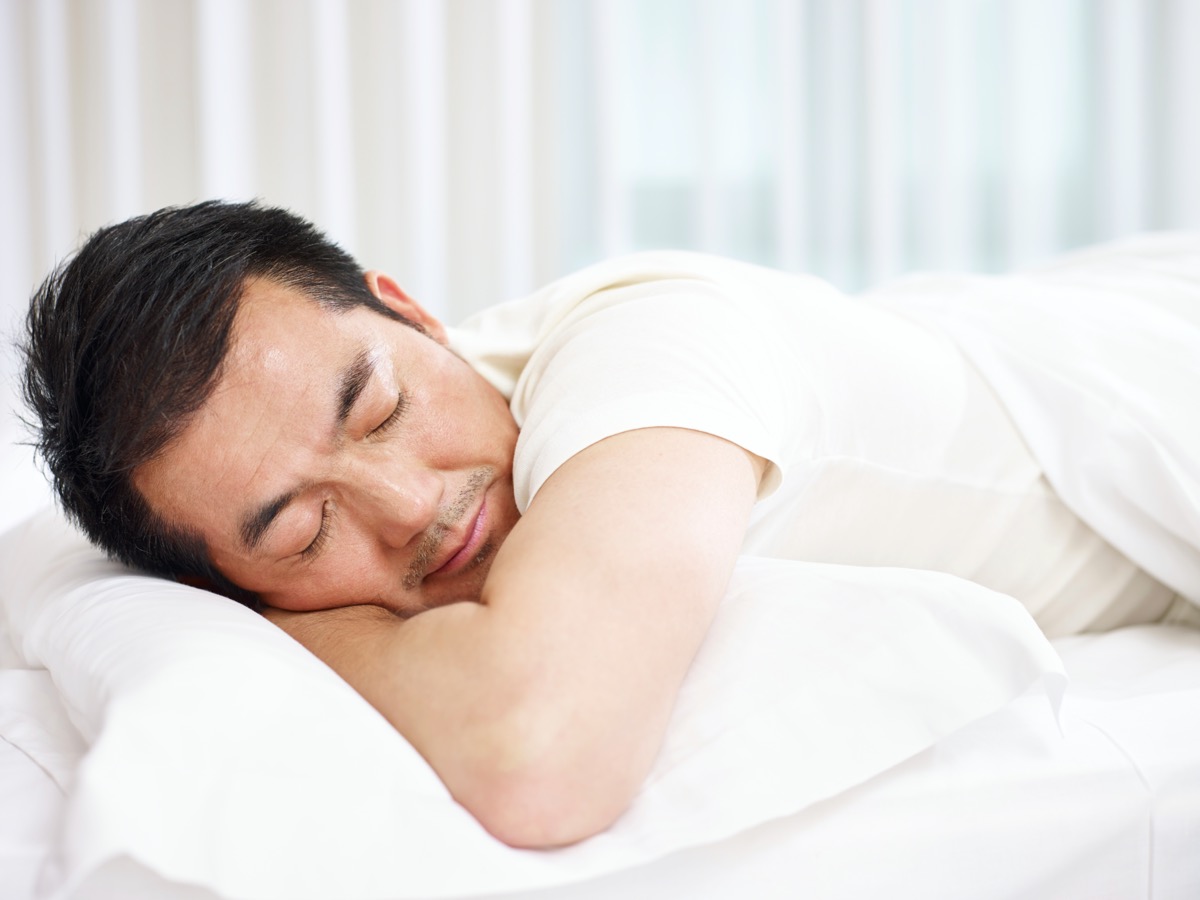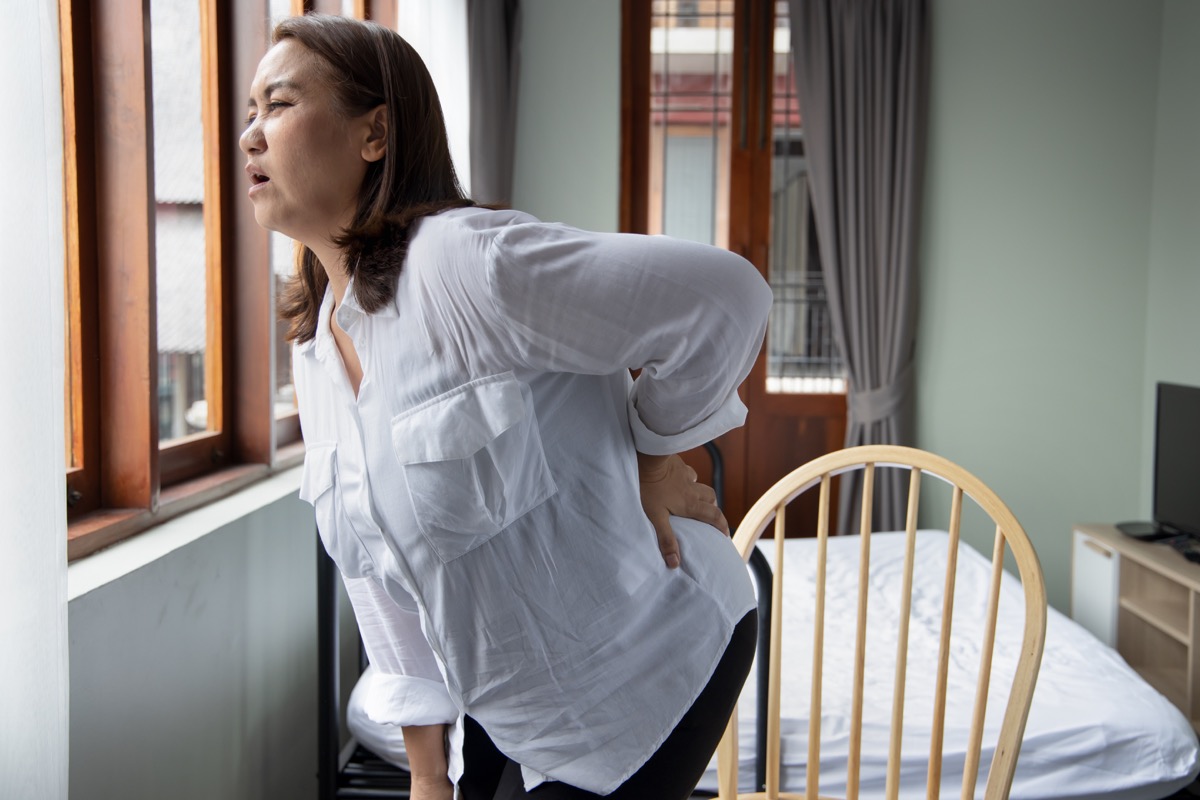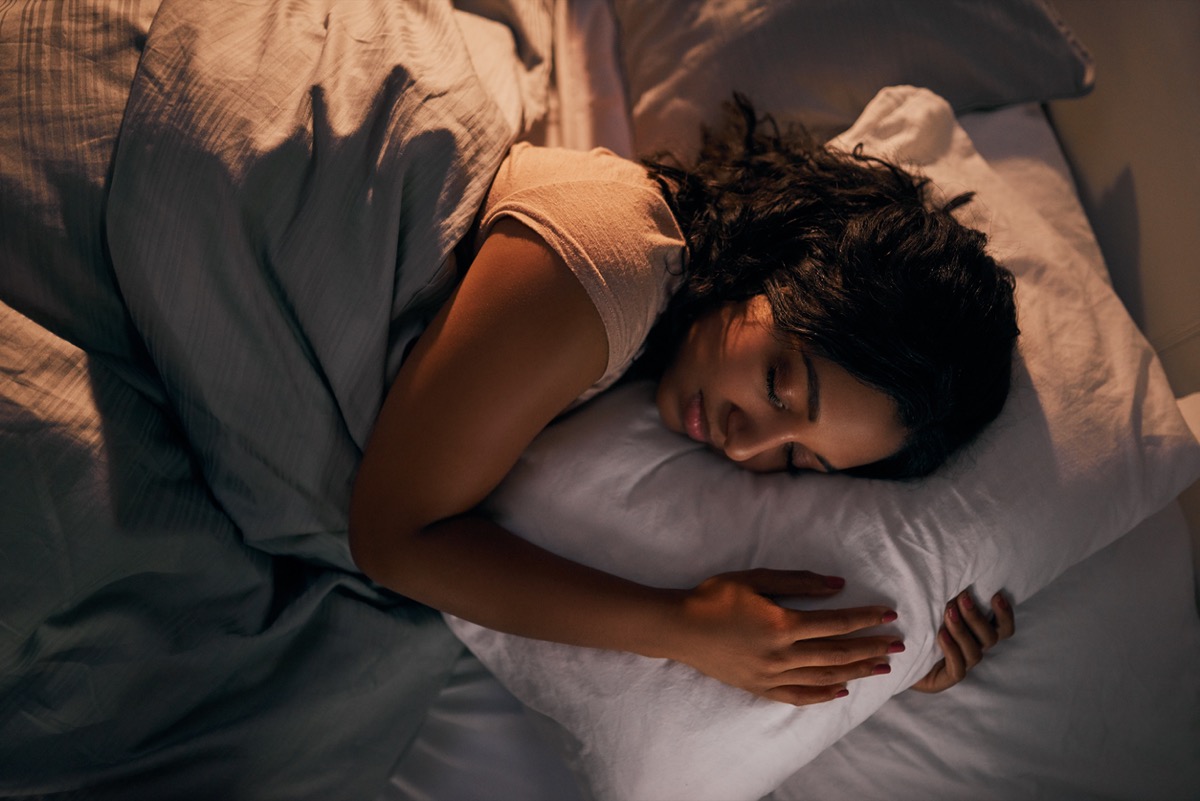Neurologist, sleep specialist, and medical advisor for WhatAsleep Pietro Luca Ratti, PhD, explains that “in the short term, you may experience aches and pain after a night of sleeping on your stomach, but in the long run, it can lead to more severe problems.” To see why sleeping on your stomach is so dangerous, read on. And for an easy way to get a better night’s rest, check out Wearing These Just Before Bed Could Help You Sleep, Study Finds. Read the original article on Best Life. Sixteen percent of people are stomach sleepers, while the majority of people (74 percent) sleep on their sides, according to a 2012 survey. But if you’re among that portion of people who do sleep on their stomachs, you’re putting your neck, back, hips, head, lungs, and heart at risk. Read on to find out how, and for more tips on healthy sleep, Never Put This In Your Body Before Bed If You Want to Sleep, Doctors Sayae0fcc31ae342fd3a1346ebb1f342fcb “Most of the issues that stem from stomach sleeping are a result of the spinal positioning,” Savy says. “When lying on the stomach, the spine loses its natural curve and can experience tension or strain. Back muscles can also be affected, which may cause back pain in the morning.” Stomach sleeping can also cause “hyperlordosis, or excessive arching, of the lumbar spine,” says physical therapist Kristen Gasnick, DPT. The position puts “increased pressure on the low back. This causes increased back pain, especially for conditions like spinal stenosis and spondylolysis.” And then, there’s the damage to your neck. “In order to breathe while lying on your stomach, you must twist your neck to one side. This creates a twist in your neck and puts it out of alignment with the spine,” Savy says. If you’re twisting your neck to one side more often, “one side of our neck gets tight, and the other gets weak,” adds physical therapist and co-founder of GetFitt.ed Nicole Lombardo, DPT. Knots and tension can form in your neck, giving your everyday pains and aches. Over time this could lead to more serious neck issues. Ratti says sleeping on your stomach also “exerts more pressure” on your heart and lungs. And for more useful information delivered straight to your inbox, sign up for our daily newsletter. In addition to hurting your neck and back, sleeping on your stomach “puts our hips in an anteriorly rotated position,” Lombardo points out, which “could increase the curve of our lumbar spine, which can create disk problems over time.” Healthline says that a herniated disk is another risk that comes with sleeping on your stomach. A herniated disk is “when there’s a rupture of the gelatinous disk between your vertebrae. When this gel bulges out from the disk, it can irritate the nerves,” they note. Besides your neck, back, and hips, the sleep position can also cause headaches. Lombardo says the twisting of the neck that accompanies stomach sleeping can lead to neck and shoulder pain, and this “tightness in the muscles here can cause pain and can also cause headaches.” To find out what you should avoid before bedtime to rest easy, find out The No. 1 Worst Thing You’re Doing Before Bed. Despite all of these warnings, if you are committed to sleeping on your stomach, you can use pillows to lessen the damage. Gasnick suggests placing a pillow under your legs, which elevates “the feet above the knees to help minimize back arching in this position to decrease the excessive lordotic spinal alignment,” she says. Another helpful tip is to place a pillow under your hips to “keep your low back in a more neutral position,” adds Lombardo. “If you must sleep on your stomach, find a pillow that can support your head in a more neutral position,” she points out. “Think of one that has a cutout, like when you get a massage. Or simply alternate which side your head turns to from night to night.” And if you have trouble sleeping at all, check out This One Thing Can Cure Your Insomnia, New Study Says. If you want a smooth transition to side sleeping, which is considered much healthier, Ratti suggests “wedging a pillow between the stomach and the mattress.” Doing this will “prevent people who are used to sleeping face-down from rolling over their bellies while asleep,” he says. And to find out when you should let your head hit the pillow, check out Going to Bed Past This Exact Time Is Hurting Your Health, Study Says.




